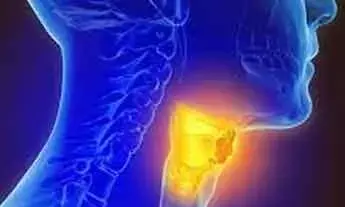- Home
- Medical news & Guidelines
- Anesthesiology
- Cardiology and CTVS
- Critical Care
- Dentistry
- Dermatology
- Diabetes and Endocrinology
- ENT
- Gastroenterology
- Medicine
- Nephrology
- Neurology
- Obstretics-Gynaecology
- Oncology
- Ophthalmology
- Orthopaedics
- Pediatrics-Neonatology
- Psychiatry
- Pulmonology
- Radiology
- Surgery
- Urology
- Laboratory Medicine
- Diet
- Nursing
- Paramedical
- Physiotherapy
- Health news
- Fact Check
- Bone Health Fact Check
- Brain Health Fact Check
- Cancer Related Fact Check
- Child Care Fact Check
- Dental and oral health fact check
- Diabetes and metabolic health fact check
- Diet and Nutrition Fact Check
- Eye and ENT Care Fact Check
- Fitness fact check
- Gut health fact check
- Heart health fact check
- Kidney health fact check
- Medical education fact check
- Men's health fact check
- Respiratory fact check
- Skin and hair care fact check
- Vaccine and Immunization fact check
- Women's health fact check
- AYUSH
- State News
- Andaman and Nicobar Islands
- Andhra Pradesh
- Arunachal Pradesh
- Assam
- Bihar
- Chandigarh
- Chattisgarh
- Dadra and Nagar Haveli
- Daman and Diu
- Delhi
- Goa
- Gujarat
- Haryana
- Himachal Pradesh
- Jammu & Kashmir
- Jharkhand
- Karnataka
- Kerala
- Ladakh
- Lakshadweep
- Madhya Pradesh
- Maharashtra
- Manipur
- Meghalaya
- Mizoram
- Nagaland
- Odisha
- Puducherry
- Punjab
- Rajasthan
- Sikkim
- Tamil Nadu
- Telangana
- Tripura
- Uttar Pradesh
- Uttrakhand
- West Bengal
- Medical Education
- Industry
Laryngology Outcomes Following Implantable Vagus Nerve Stimulation: JAMA

Vagus nerve stimulation (VNS) using an implantable neuromodulator has been employed in the treatment of refractory epilepsy. The device functions through a lead attached to the vagus nerve that provides a stimulus from an implanted pulse generator. It has been shown that around 50% of epilepsy patients report a decrease in the severity of their seizures with VNS therapy, and the efficacy of VNS therapy is well supported in the literature.
Frequent complications of VNS therapy include paresthesia, dyspnea, and infection, but damage to the vagus nerve is one of the most well-known complications of VNS implantation. Iatrogenic vagus nerve damage is a serious complication because the vagus nerve is vital to both somatic and autonomic functions. The literature on VNS implantation has shown that iatrogenic injury to the vagus nerve can produce a variety of negative outcomes such as headaches, coughing, and unilateral vocal fold paralysis. Unilateral vocal fold paralysis is known to have a severe effect on quality of life, including aspiration, shortness of breath, and hoarseness. The adverse nature of this complication underscores the importance of better understanding the etiologies (eg, device parameters vs surgical issues) to mitigate the risk of vocal fold paralysis.
In this study, Brauer PR and team sought to evaluate reports of laryngeal adverse effects associated with VNS implantation using the nationwide Manufacturer and User Facility Device Experience (MAUDE) database from the FDA. This retrospective cross-sectional analysis queried the FDA Manufacturer and User Facility Device Experience database of adverse events in the US between 1996 and 2020. The primary outcome was the percent of adverse events reported to the FDA that included patients who received VNS with laryngeal adverse effects and the associated proportion of device problems after VNS surgery.
A total of 12725 iatrogenic vagus nerve issues were documented after VNS implantation, with apnea (n = 395; 3.1%) being the most common patient problem. Overall, 187 reports of laryngeal adverse effects associated with VNS devices were identified and represented the eighth most common iatrogenic vagus nerve problem reported to the FDA. Laryngeal adverse effects included 78 reports of voice alteration and 57 reports of paresis/paralysis. The VNS device problems frequently associated with laryngeal adverse effects were high impedance (n = 15, 8.02%), incorrect frequency delivery (n = 10, 5.35%), and battery problems (n = 11, 5.88%). The number of laryngeal adverse effect reports per year peaked in 2012 with 43 cases.
The findings of this cross-sectional study show that reports of VNS-related laryngeal symptoms are being sent to the FDA even though voice changes are expected after surgery. Surgeons can improve the quality of care for patients with epilepsy through better setting expectations regarding laryngeal adverse effects associated with VNS devices. There were also a number of documented vocal fold paresis and/or paralysis cases. The VNS-specific device problems associated with laryngeal adverse effects included high impedance, incorrect frequency delivery, and battery problems. The findings of this study indicate that there is also opportunity to improve outcomes for patients with VNS through preoperative laryngeal assessment and early recognition of vocal fold paralysis.
Source: Brauer PR, Lamarre ED, Gau VL, Lorenz RR, Wu SS, Bryson PC. Laryngology Outcomes Following Implantable Vagus Nerve Stimulation. JAMA Otolaryngol Head Neck Surg. 2023;149(1):49–53. doi:10.1001/jamaoto.2022.3699
Dr Ishan Kataria has done his MBBS from Medical College Bijapur and MS in Ophthalmology from Dr Vasant Rao Pawar Medical College, Nasik. Post completing MD, he pursuid Anterior Segment Fellowship from Sankara Eye Hospital and worked as a competent phaco and anterior segment consultant surgeon in a trust hospital in Bathinda for 2 years.He is currently pursuing Fellowship in Vitreo-Retina at Dr Sohan Singh Eye hospital Amritsar and is actively involved in various research activities under the guidance of the faculty.
Dr Kamal Kant Kohli-MBBS, DTCD- a chest specialist with more than 30 years of practice and a flair for writing clinical articles, Dr Kamal Kant Kohli joined Medical Dialogues as a Chief Editor of Medical News. Besides writing articles, as an editor, he proofreads and verifies all the medical content published on Medical Dialogues including those coming from journals, studies,medical conferences,guidelines etc. Email: drkohli@medicaldialogues.in. Contact no. 011-43720751


